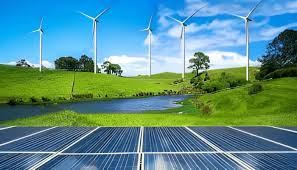The International Day of Clean Energy offers a global platform to reflect on the critical role of renewable energy in addressing climate change, improving energy security, and fostering sustainable economic growth. For Nigeria, a country blessed with abundant natural resources yet grappling with energy poverty, the day is a reminder of the urgent need to accelerate its clean energy transition and harness the immense opportunities it presents.
Nigeria’s energy landscape is paradoxical. On one hand, it is Africa’s largest oil producer, heavily reliant on fossil fuels for revenue and energy. On the other, it has one of the largest energy access deficits globally, with over 40 per cent of its population—roughly 85 million people—lacking access to electricity. This duality highlights the pressing need for Nigeria to diversify its energy mix, reduce dependence on oil, and embrace cleaner, more sustainable energy sources.
Clean energy presents a path forward. Nigeria is richly endowed with renewable energy resources, including solar, wind, hydro, and biomass. Solar energy, in particular, offers transformative potential, given the country’s high levels of sunshine throughout the year. Tapping into this resource could provide electricity to underserved rural communities, reduce reliance on expensive diesel generators, and create jobs in renewable energy manufacturing and installation.
The Nigerian government has made commendable strides in clean energy adoption. The National Renewable Energy and Energy Efficiency Policy (NREEEP) sets ambitious targets for renewable energy integration, while initiatives like the Solar Power Naija programme aim to deploy solar home systems to millions of households. The government’s commitment to achieving net-zero emissions by 2060 is another significant step toward aligning with global climate goals.
Despite these efforts, progress remains slow. Barriers such as inadequate financing, weak infrastructure, and inconsistent policy implementation have hampered the scale-up of renewable energy projects. Private sector participation is often stifled by bureaucratic bottlenecks, while consumers face affordability challenges in adopting clean energy technologies.
On this International Day of Clean Energy, Nigeria must reaffirm its commitment to building a sustainable energy future by addressing these challenges head-on. First, the government should prioritise investment in renewable energy infrastructure, particularly in rural areas where energy access is most limited. Expanding the national grid to integrate renewable energy sources and establishing mini-grid systems can provide reliable and affordable power to millions.
Second, financing must be scaled up. Public-private partnerships, concessional loans, and innovative financing mechanisms can unlock the capital needed for large-scale renewable energy projects. Incentives such as tax breaks and subsidies for clean energy businesses and consumers can also accelerate adoption.
Third, research and development should take center stage. Investing in local innovation and capacity-building will enable Nigeria to develop homegrown clean energy solutions tailored to its unique needs. Establishing partnerships with international organisations and leveraging global expertise can further enhance these efforts.
Fourth, public awareness and education are crucial. Advocacy campaigns highlighting the benefits of clean energy—such as reduced air pollution, lower electricity costs, and job creation—can encourage widespread adoption and foster a culture of sustainability.
Lastly, policy consistency is non-negotiable. Clear, transparent, and enforceable regulations are essential to building investor confidence and ensuring the long-term success of Nigeria’s clean energy transition. The government must also engage stakeholders, including private investors, civil society organisations, and local communities, in the policy-making process to create inclusive and effective solutions.
The benefits of clean energy for Nigeria are immense. Beyond mitigating climate change, renewable energy can drive economic diversification, reduce energy poverty, and position Nigeria as a leader in Africa’s energy transition. The global clean energy market is projected to grow exponentially in the coming decades, offering Nigeria an opportunity to attract foreign investment, develop export-oriented industries, and create millions of green jobs.
However, time is of the essence. As the effects of climate change intensify and global momentum for decarbonization accelerates, Nigeria must act swiftly to secure its place in the clean energy future. The International Day of Clean Energy is not just a celebration but a call to action—a reminder that Nigeria’s energy future depends on the decisions made today. By embracing clean energy, Nigeria can chart a sustainable path forward, ensuring prosperity for its people and preserving the planet for future generations.





